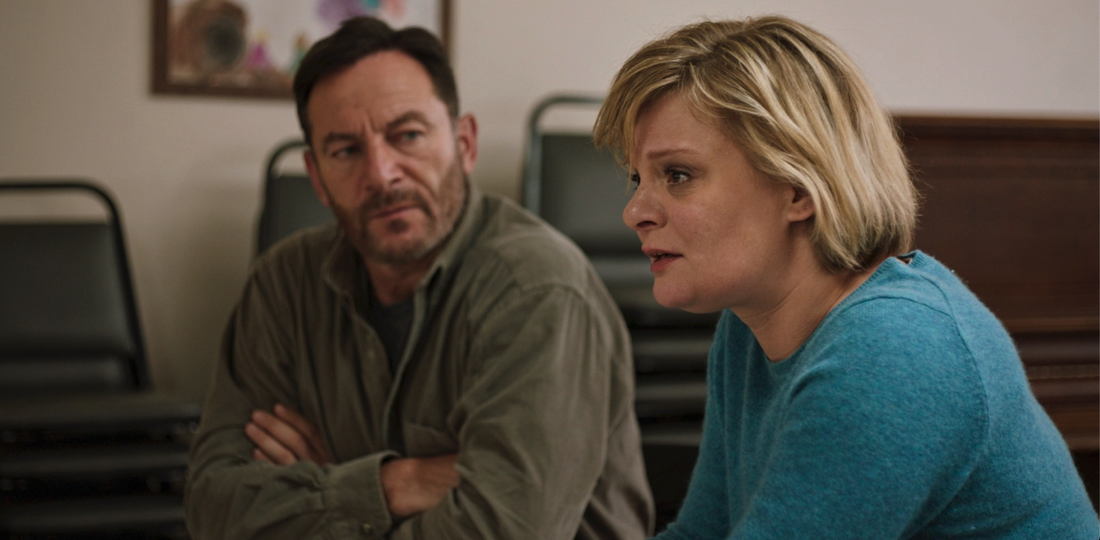Evan D.If there has been one silver lining of a massive, life altering pandemic forcing us all to stay home, it may be the other pandemic that it placed on hold. Simply by virtue of schools being closed, the coronavirus pandemic has ushered in the longest period without school shootings in the United States in decades. Although our current torment consumes much of our thought, it’s worthwhile to remember the trauma it temporarily alleviated. Fran Kranz’ Mass is a bruising reminder. When news comes down of another tragic shooting at a school, the predictably vicious pattern is set in motion. First comes the outpouring of sympathy and sorrow. Out of the initial shock comes a wave of activism and an inevitable political tug of war. What happens next may be the most tragic of all; people move on. Sometimes the news cycle latches onto some Hollywood or Washington scandal, too often it’s consumed by coverage of another mass shooting. Whatever the reason, once the cameras recede and the eyes of America are captivated by something else — far too often another shooting — what’s left behind are the families, shattered and broken without the luxury of moving on.
Isolation is where these families are left, and isolation is where we begin in Mass, the directorial debut of actor Fran Kranz. A quiet church is frantically being prepared to host a meeting between one set of parents whose son was killed in a school shooting (played by Jason Isaacs and Martha Plimpton) and another set whose son pulled the trigger (Reed Birney and Ann Dowd.) Set an unclear number of years after the events that violently altered the course of each of their lives, the families are in an impossible search for some sort of closure and comprehension of what happened and why. By nature this is an intimate film, so much so that you’d be forgiven for thinking that it’s a stage adaptation. Most of Mass takes place of just one room, a small space that hosts one conversation between four parents attempting to talk through their entrenched pain. Each carries with them the ghost of a child torn from them too soon and that pain only serves to tighten the confines of the film. Given its confined nature, much of Mass relies on on its stellar script to relay the depth of an inherently emotional premise. The conversation at the film’s core tracks closely to the stages of grief, not only on the part of the victim’s parents, but the shooter’s as well. Their awkward introductions morph into expressions of remorse, fiery exchanges of rage and muted hopes for healing. Of course, a script is just words on a page, waiting to be delivered and with a movie as talky as Mass, action is doubly important. All four leads are given at least one big moment, suitable for an Oscar reel. More than that though, each is quietly convincing in their smaller moments too. Isaacs as the victim’s father and Dowd as the shooter’s mother especially deliver tear jerking moments. Taken in its entirety, what Mass does is tenderly encapsulate the pain and grief left in the wake of mass shootings. Although Isaacs character makes one impassioned and cogent case for gun control early, the politics of mass shootings are mostly below the surface. The film can be subtle like that because it’s all internalized within the pain these families are still faced with years on. While the country can keep moving on to the next story, for these four it’s not just a story to move on from. Like many films that dazzle at Sundance, Mass finds its way to a conclusion that feels just a bit too neat and tidy. Without spoilers, that clean ending feels a bit out of place for a film grappling with such messy situations. Ultimately though, it’s better to have those final scenes uplift than disappoint or completely derail and Mass does end up delivering on its well intentioned premise 8/10
Comments
|
Categories
All
Archives
April 2024
|
